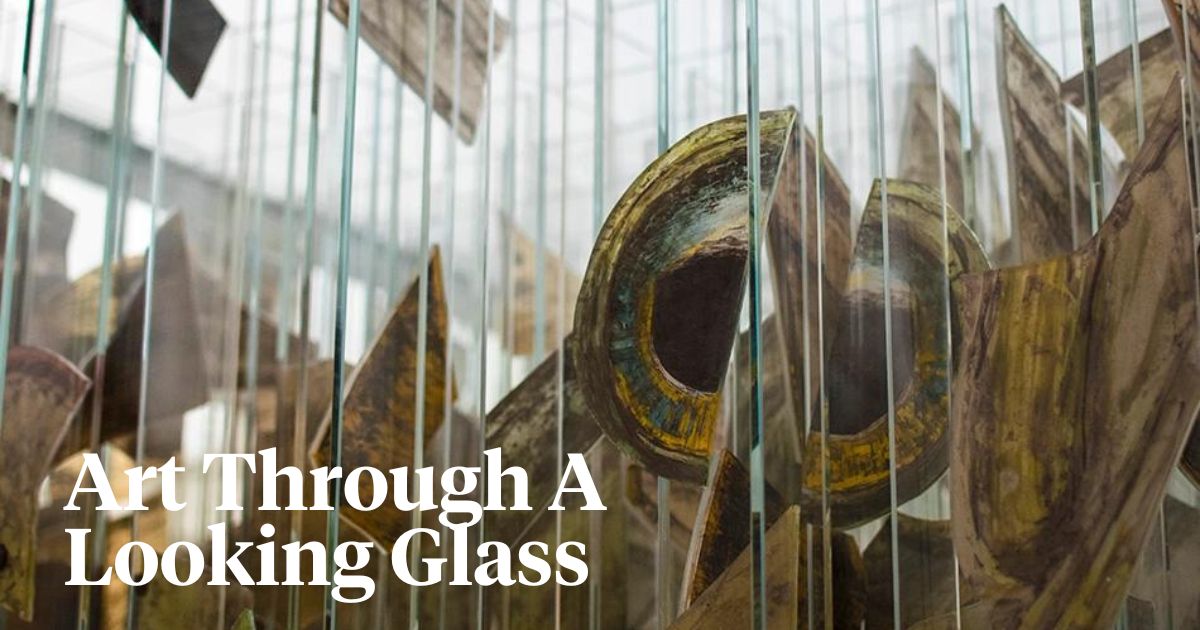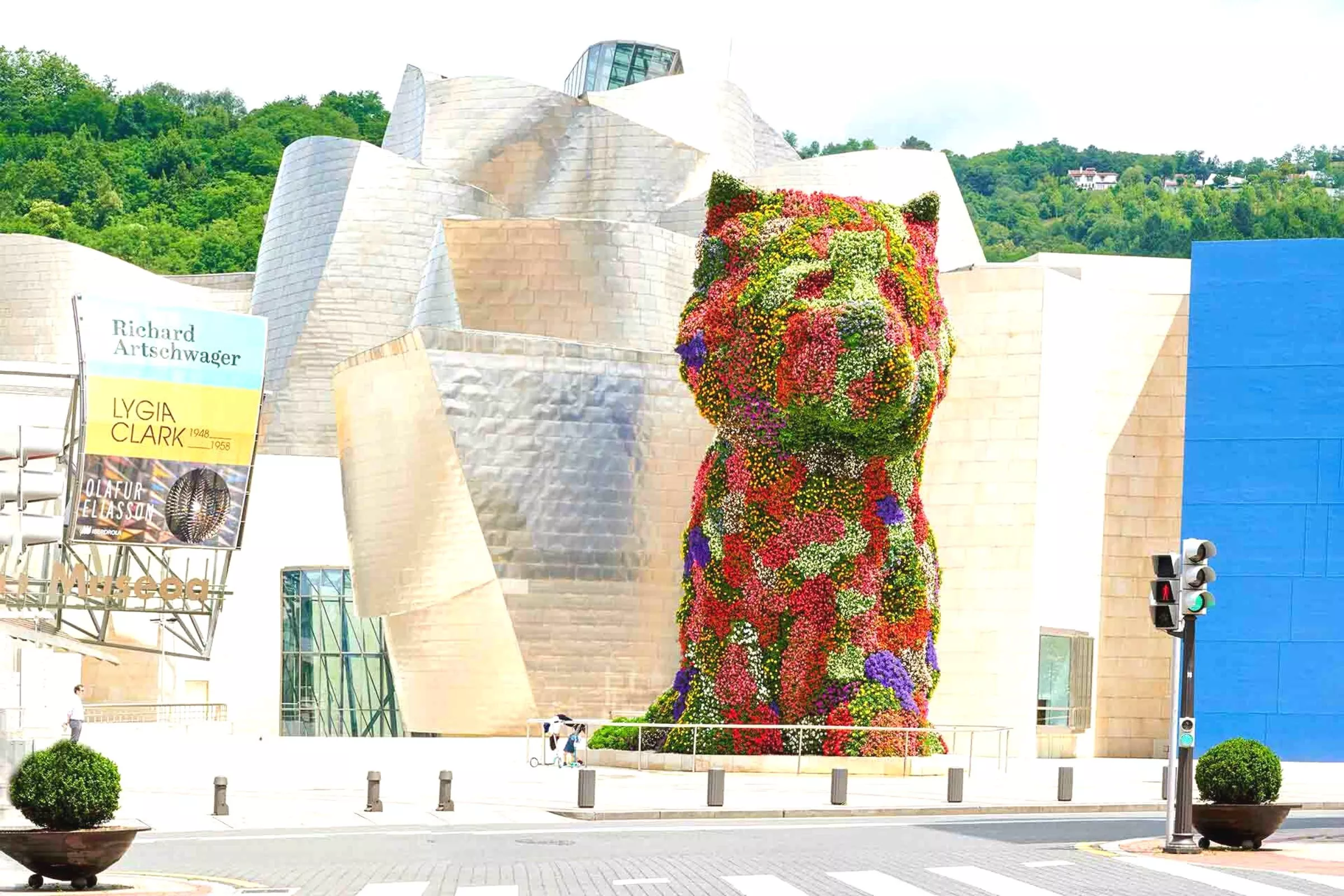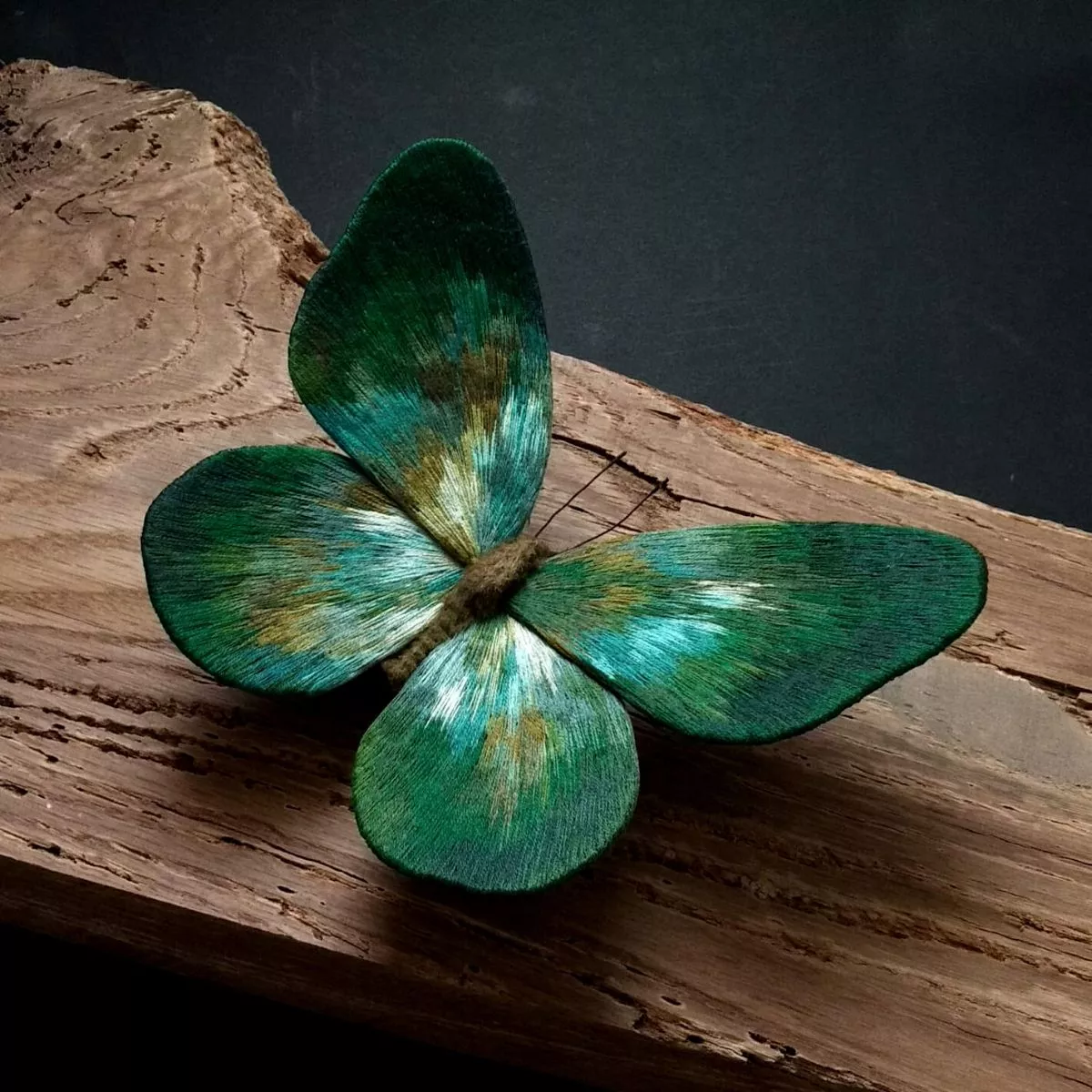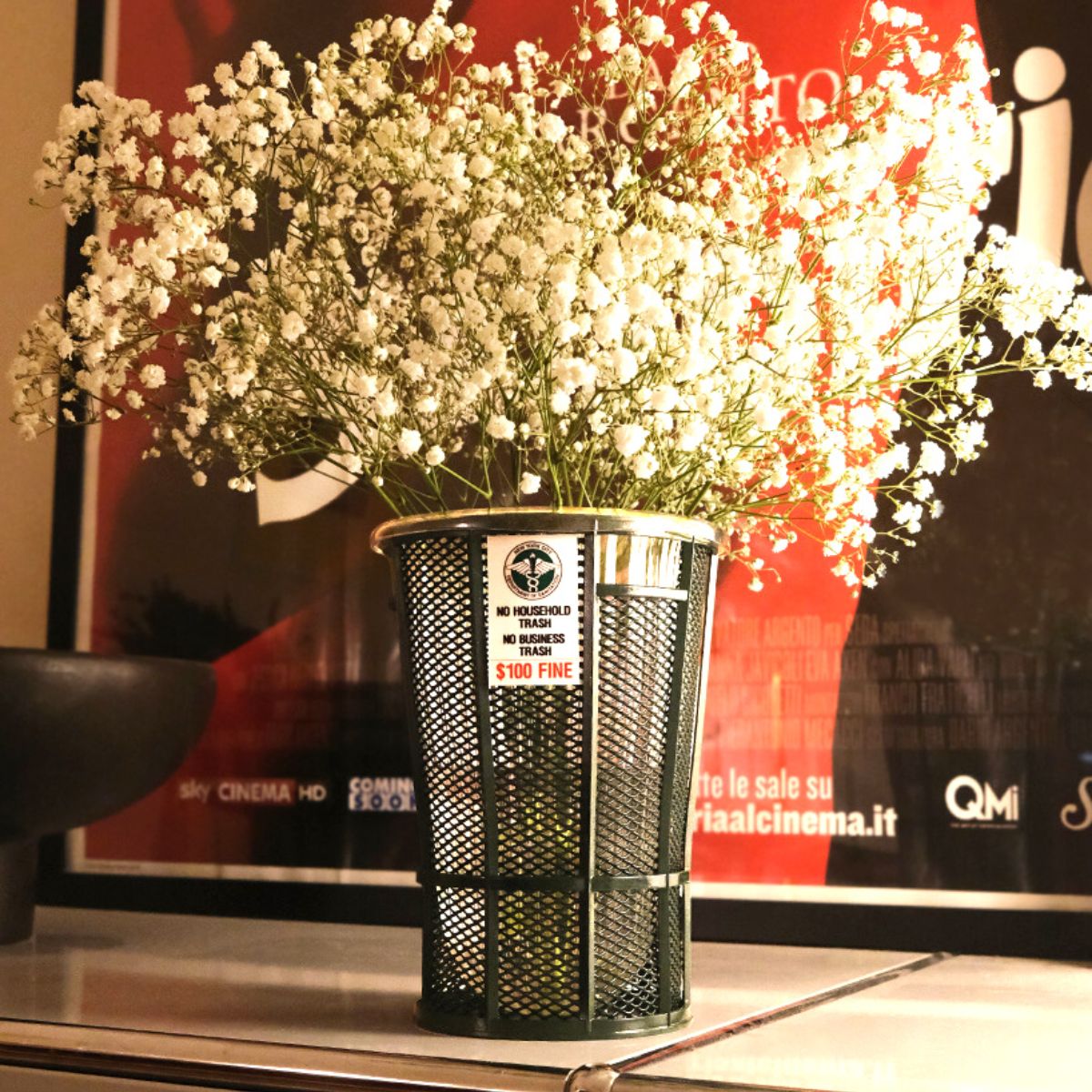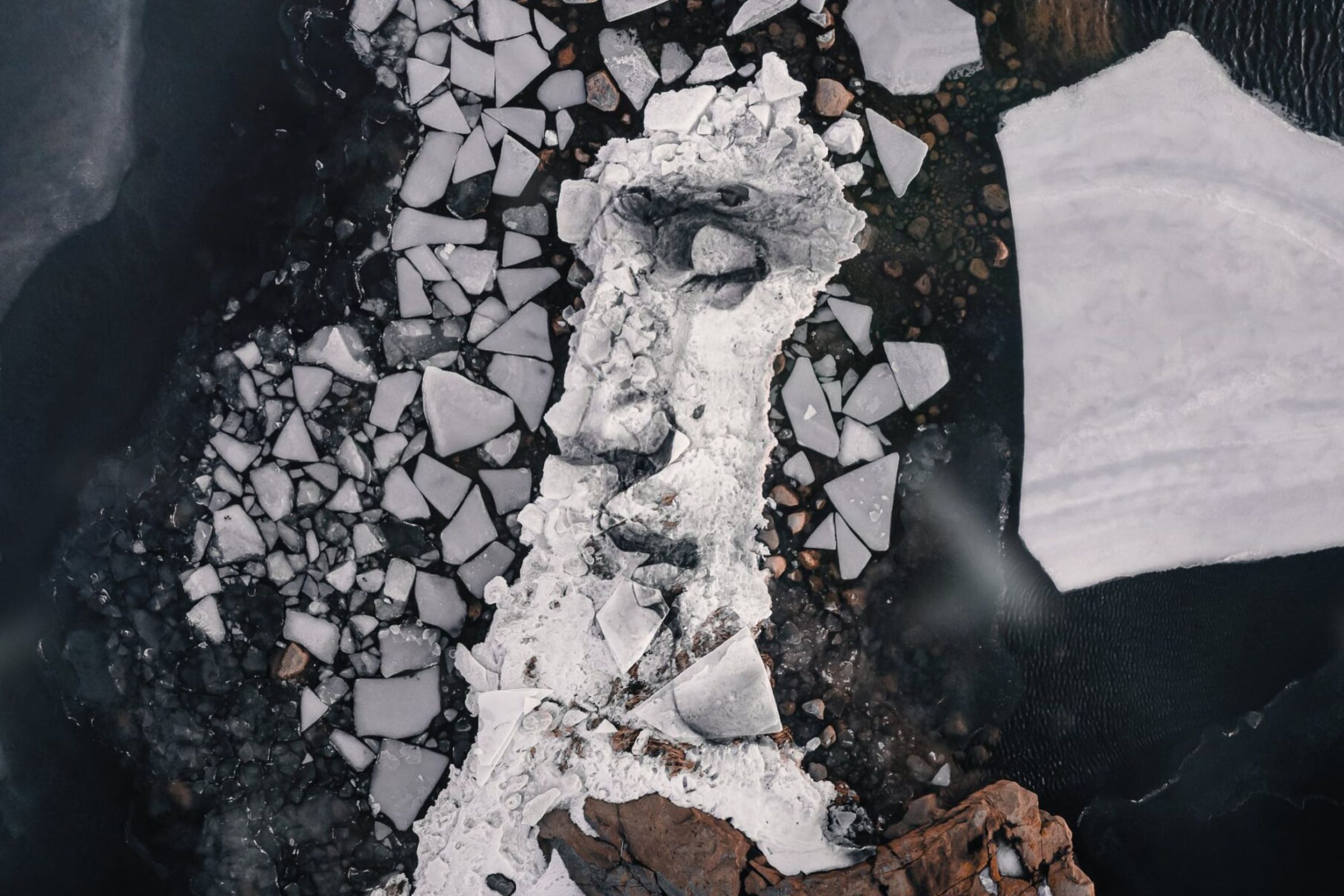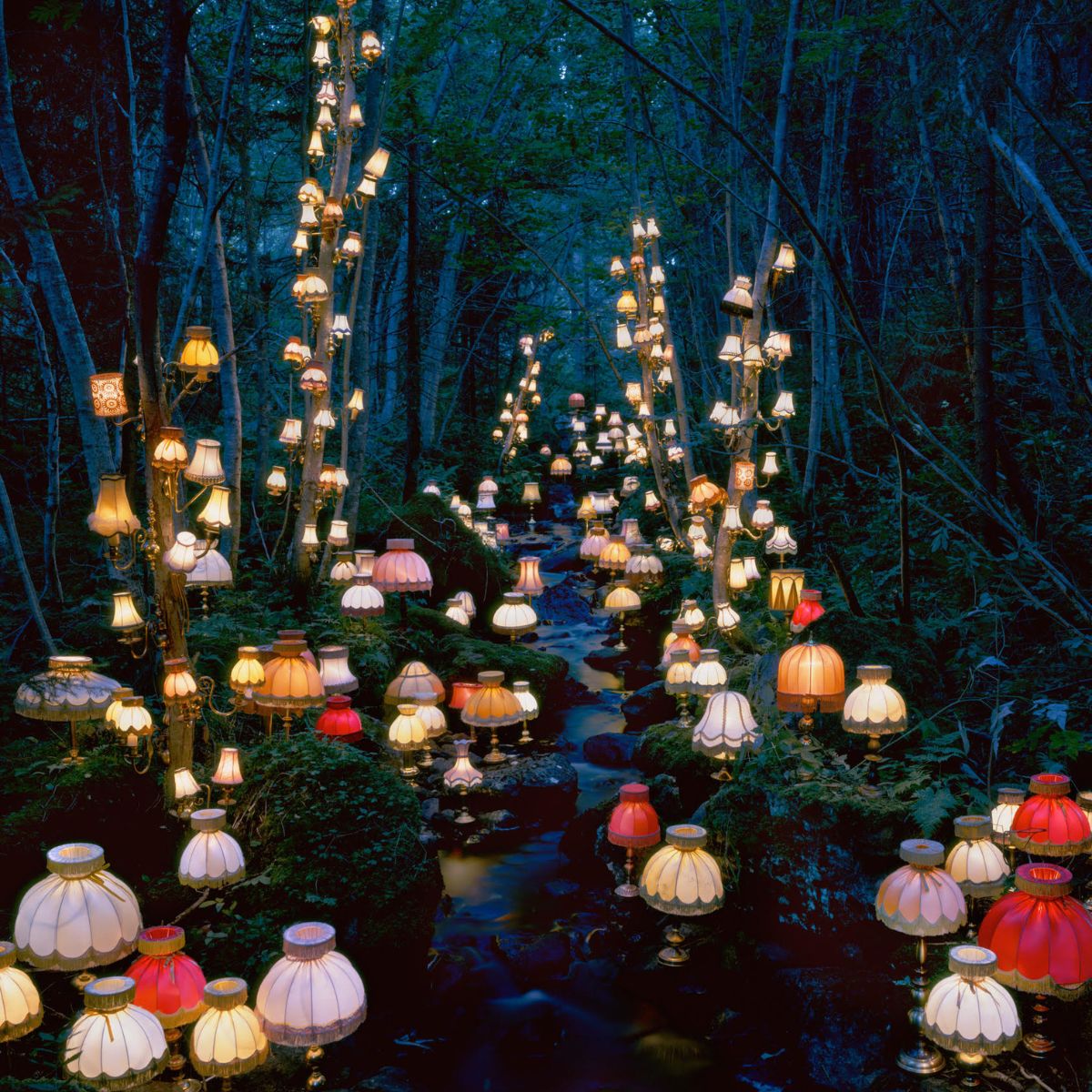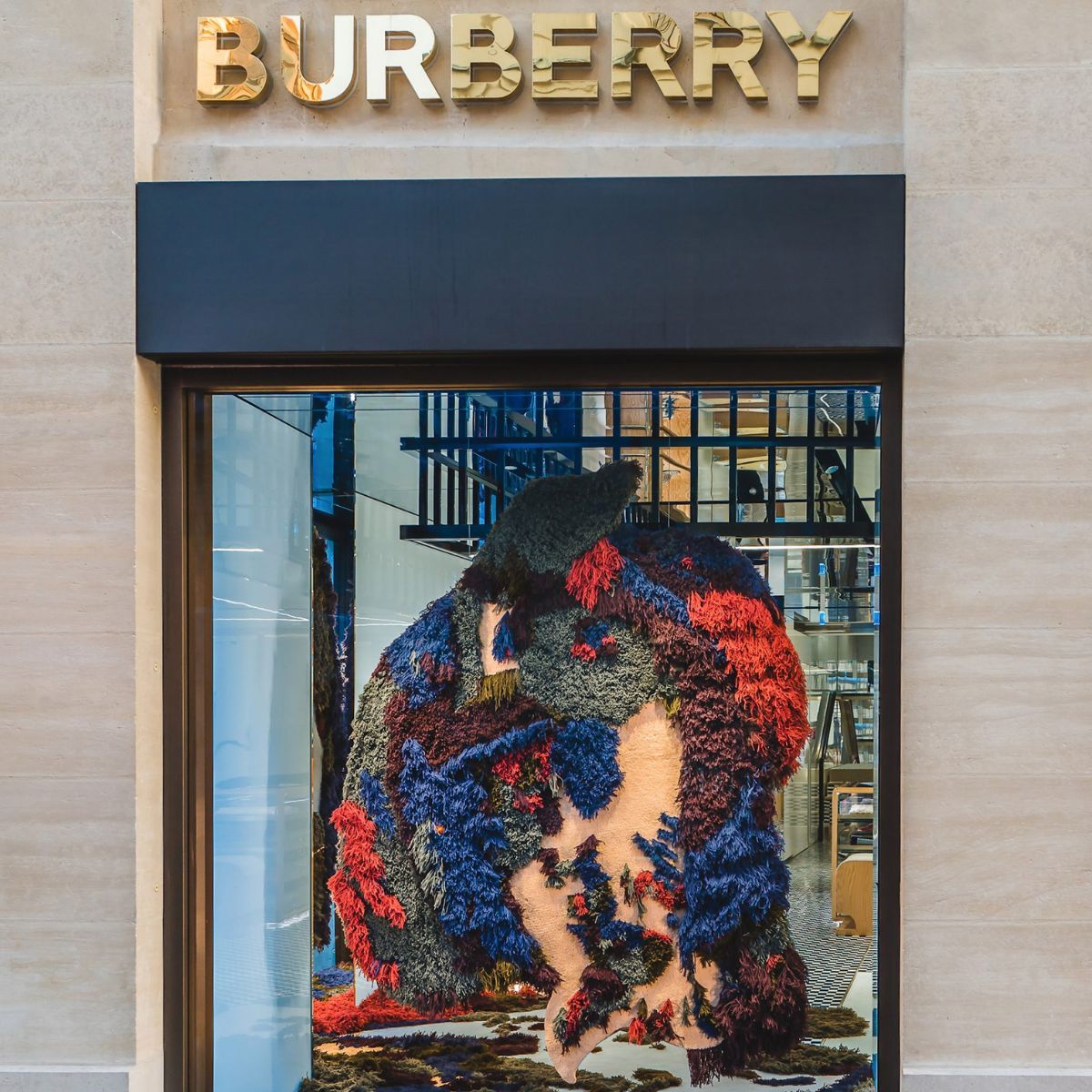Your eyes will not believe the magic trick that Thomas Medicus' artwork performs on the human brain. His newest artistic installation shows dissolving endangered animals through a glass sculpture, which makes you think about the power of perception. Looking at the glass sculpture from the right you'll get one image. As you move towards the center, you get the full endangered animal art, and from the left, once again, is another perspective.
Thomas Medicus Creates a Genius Glass Sculpture With Dissolving Endangered Animals
In the latest public artwork by Austrian-born Thomas Medicus, depending on which direction you approach from, you can run into a lynx, a bee, a kingfisher, or a river trout. As you move around the piece, one image progressively transforms into abstract color strips until a new creature comes together on another side. Medicus' Human Animal Binary features more than 144 interlocked strips of glass and concentrates on four animals indigenous to the Tyrol region of Austria.
Medicus is known for his anamorphic sculptures that alter with every 90-degree rotation. All the animals shown in his glass sculpture art are at risk or are endangered as a result of the growing effects of the climate catastrophe.
Human Animal Binary
In the art project Human Animal Binary, four fragmentary representations of Tyrol-native animal species that are impacted by climate change are displayed. In a cube-shaped area, 144 strips of glass are interwoven with images of lynx, bee, kingfisher, and river trout.
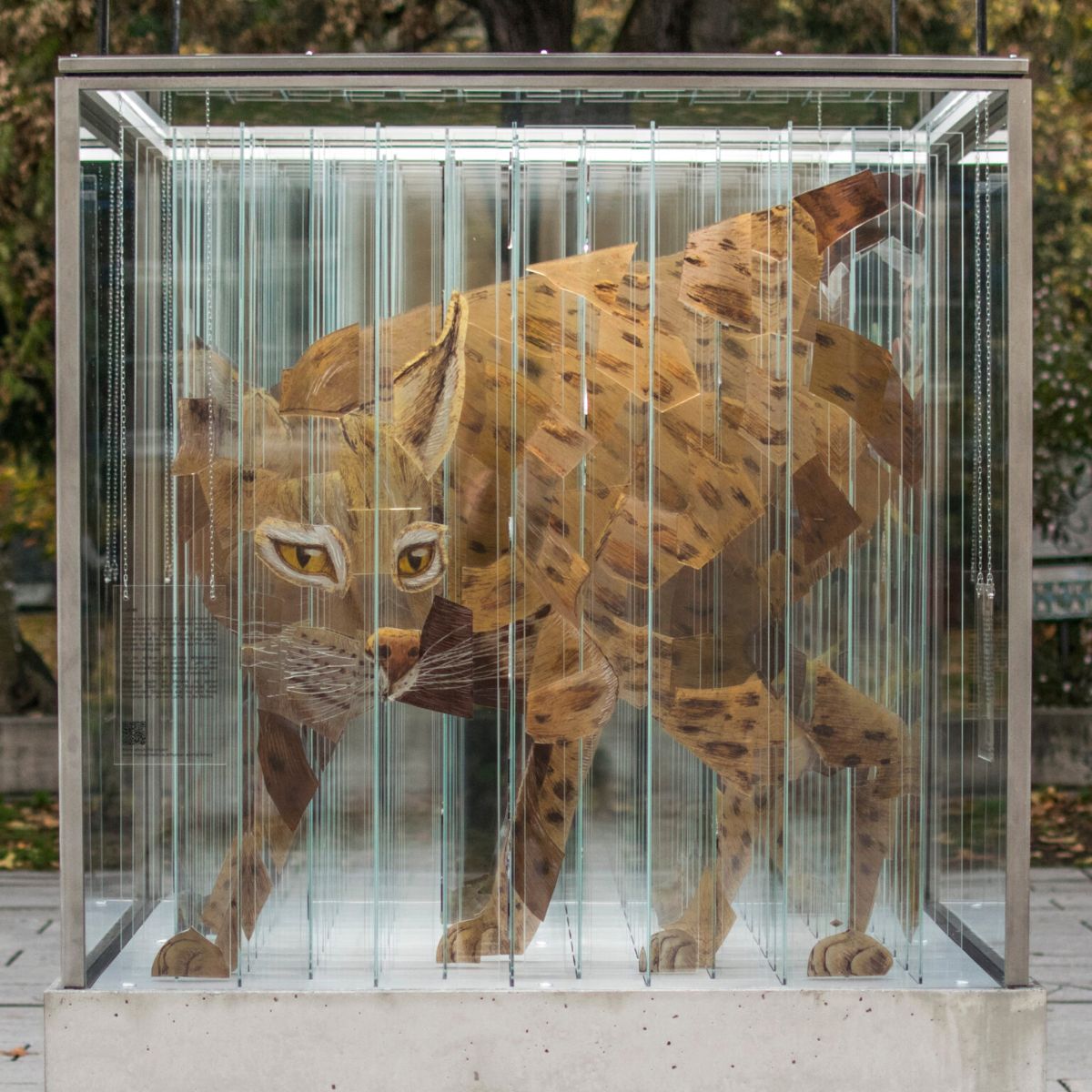
As you move around the sculpture, the images break apart into pieces and then come back together, evoking the continual emergence and demise of living things. In each instance, a text on the biodiversity crisis is presented in addition to this artistic presentation. An arc is drawn to more expansive ecological contexts starting from the appropriate description.
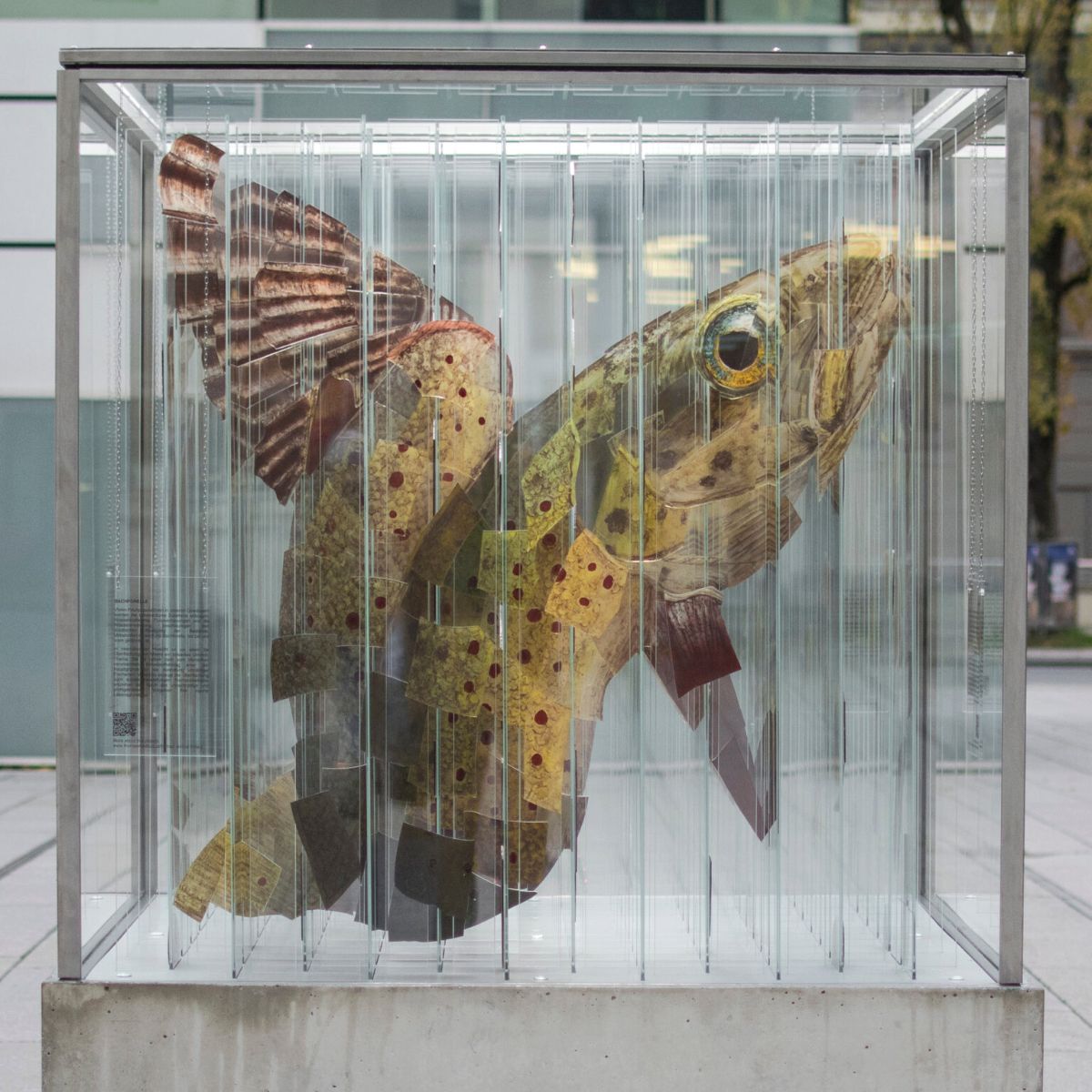
Details About the Glass Installation by Thomas Medicus
The installation, which is built of glass, concrete, and metal, highlights a conflict that a huge portion of humanity faces: coexisting with non-human creatures is mostly incompatible with human habitat. It is essential to rebuild the roots of civilization in how it deals with the environment in order to avoid going over the planet's carrying capacity limits and prevent the destruction of our living space.
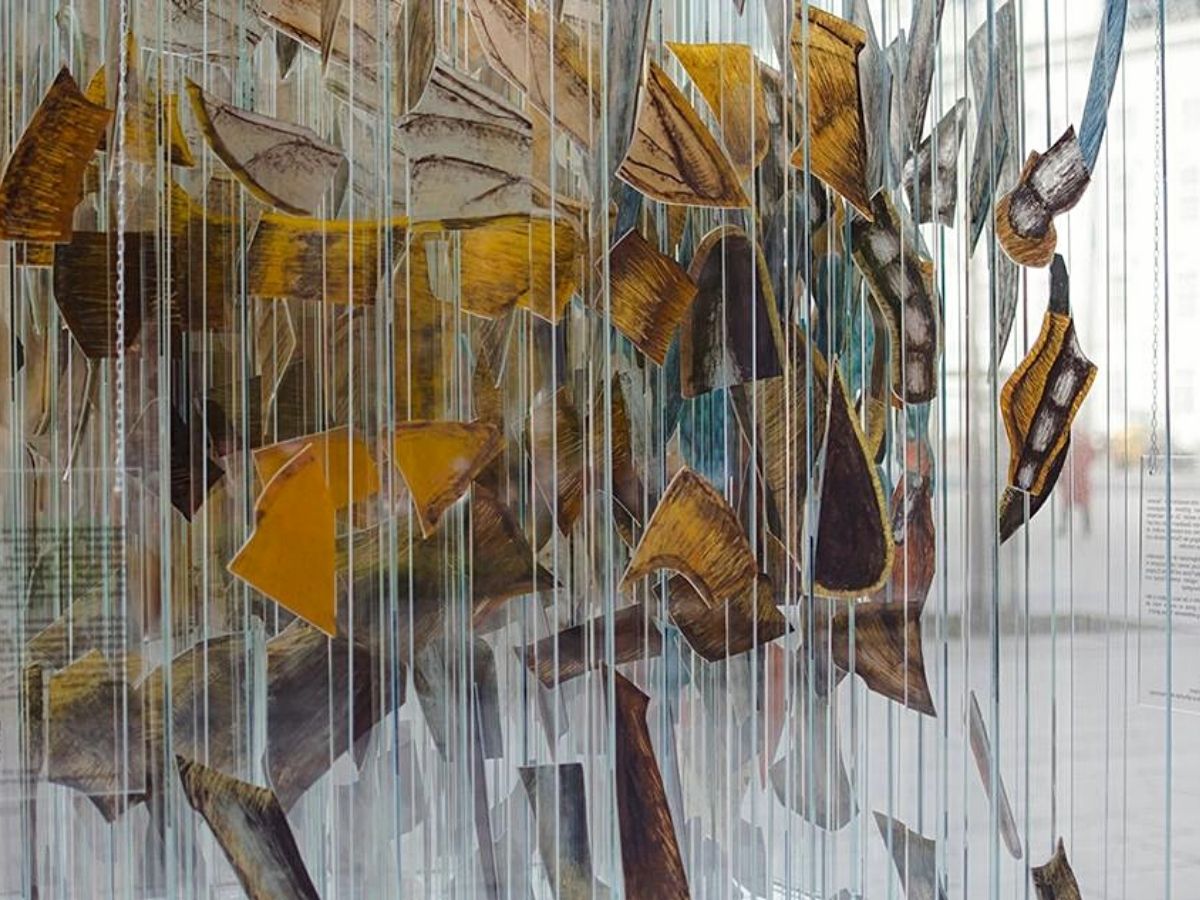
A new design is urgently needed since the climate crisis once again makes it evident that our conception of "nature" as something apart from us and beneath us is beginning to fall apart.
The long-lasting Human/Animal Binary was intended.
A Glass Sculpture With a Very Important Intention and Purpose
The vitrine housing the artist's glass creatures refer to man-made structures and the urban landscape encroaching on natural habitats by being made of glass, concrete, and metal. According to a statement from Medicus, the vessel addresses a dilemma in which a huge portion of humanity finds itself: human habitat mainly opposes coexistence with non-human creatures. Each species kept inside the cube asks the visitor to look them in the eye and reflect on the fragile ecosystem around them, the frailty of life, and the crucial part humans play in both destroying and preserving nature.
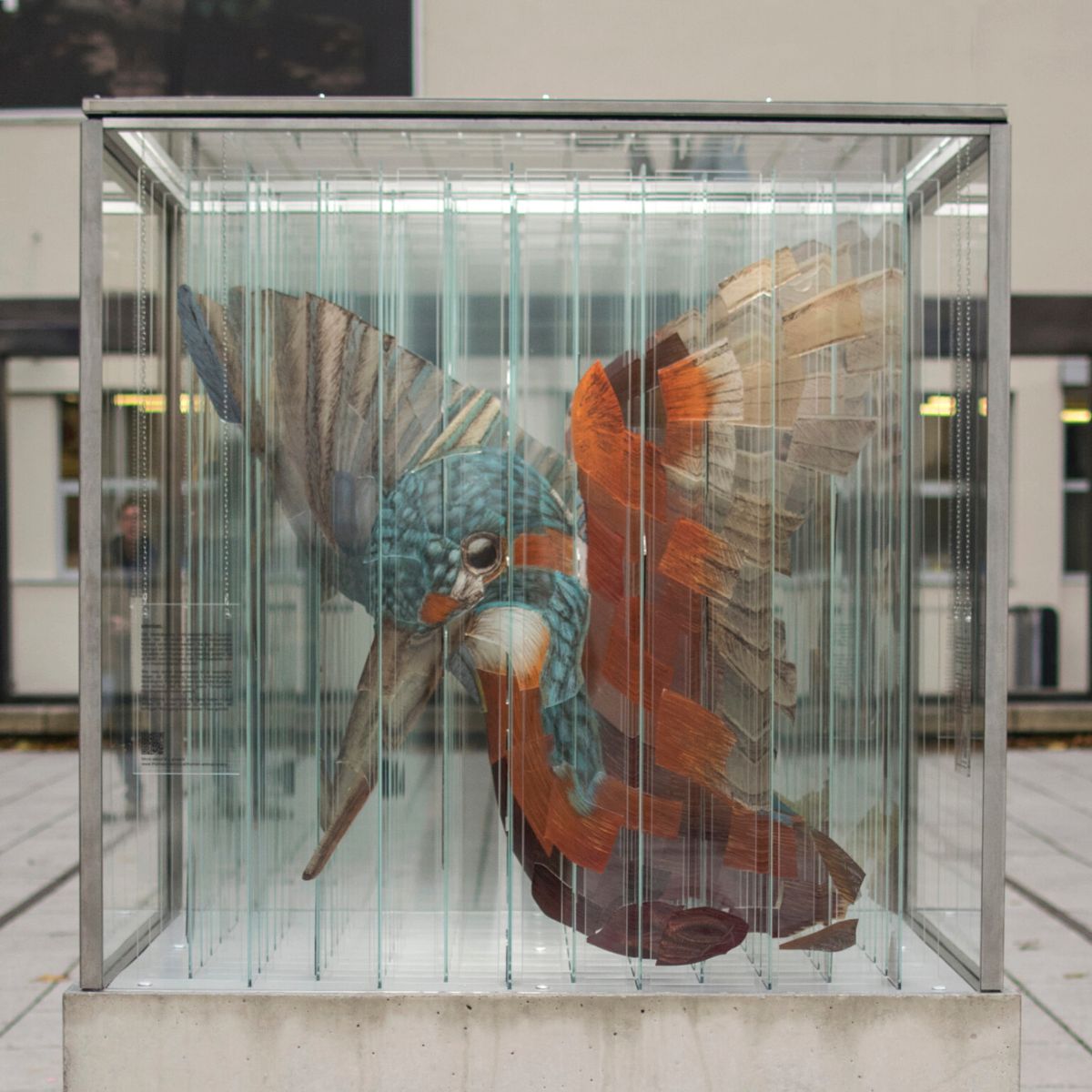
What Is the Concept of Anamorphic Art?
Anamorphosis is a clever perspective technique used in the visual arts that, when viewed from a particular angle or when reflected in a curved mirror, produces a distorted image of the subject being depicted in a picture. However, when the distortion is removed, the image in the picture appears to be normal.
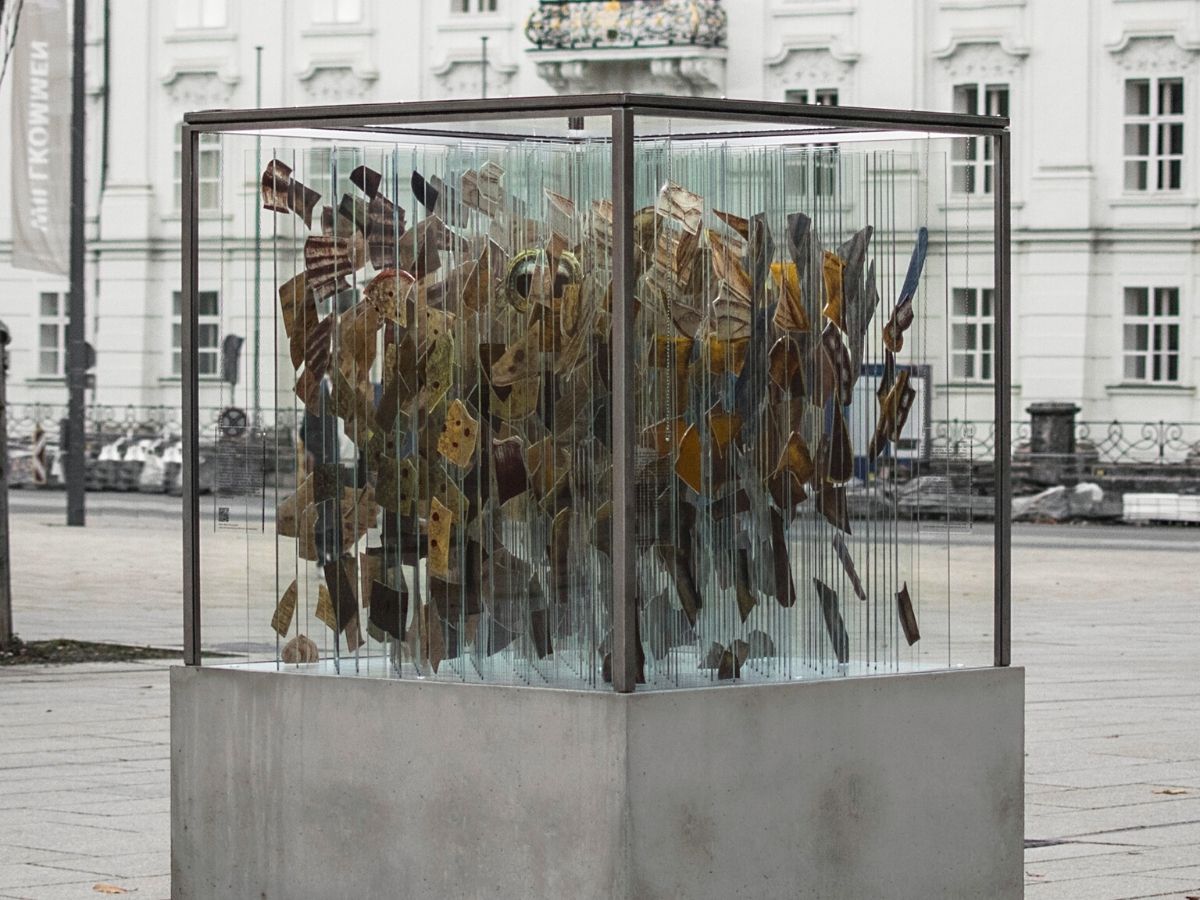
Thomas Medicus' unique pieces of anamorphic art use images that all take up the same amount of surface area, which enables the cube to reveal one single image per angle. This technique provides viewers with an illusion of solidity using the combination of painted images and a crystal-clear glass cube.
More About Thomas Medicus
Thomas Medicus is a visual artist based in Innsbruck, Austria. Best known for his anamorphic cubes, he also works in other artistic fields such as illustration, animation, digital art, stained glass, and public art. He studied social work at MCI Innsbruck before attending Glasfachschule Kramsach, a glass art school. In addition to his activity as a freelance artist, he is employed in a long-standing stained glass company Tiroler Glasmalerei as a master glassmaker and painter of glass.
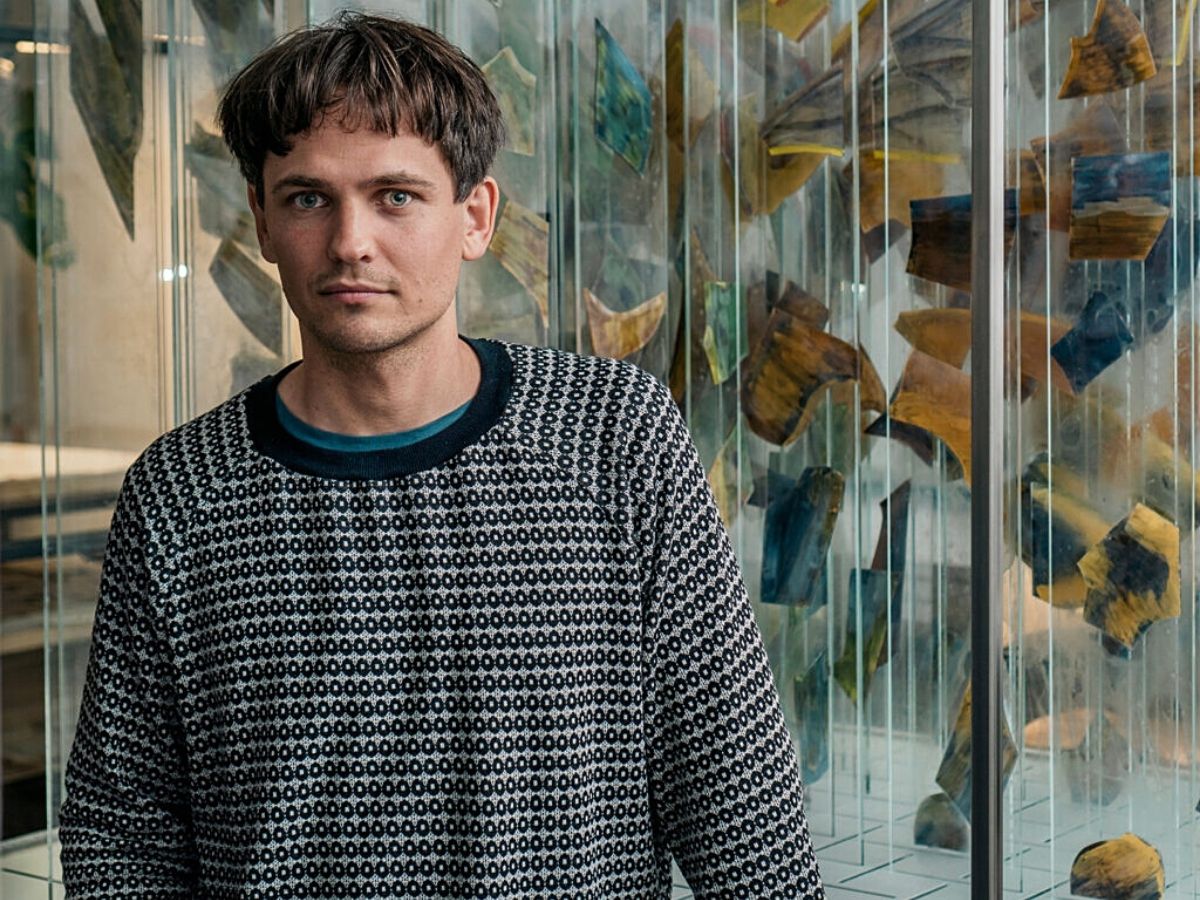
Medicus shares his talented work on the Thomas Medicus website and Instagram. You cannot miss out on seeing everything he creates!
Photos by Thomas Medicus.

